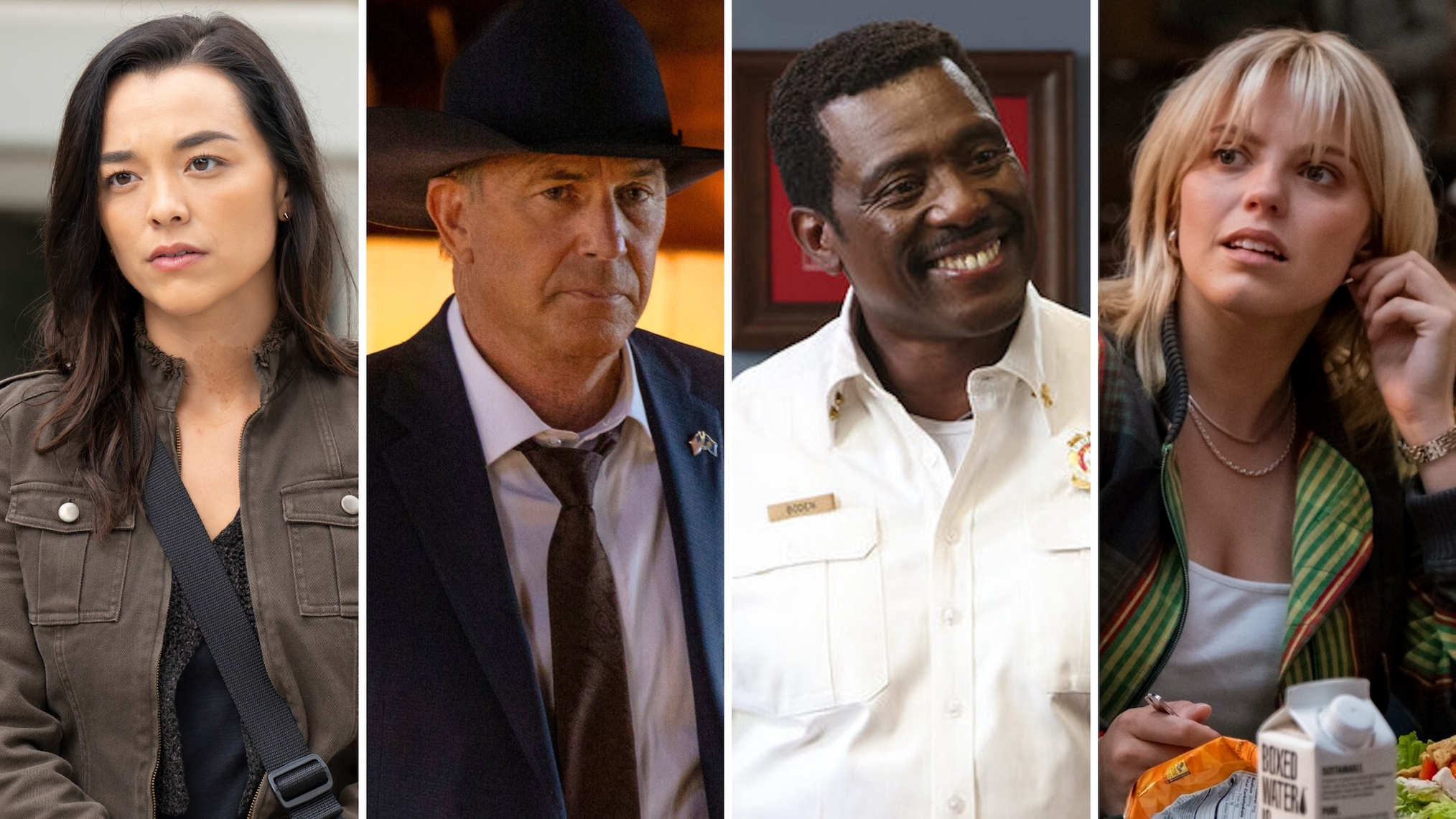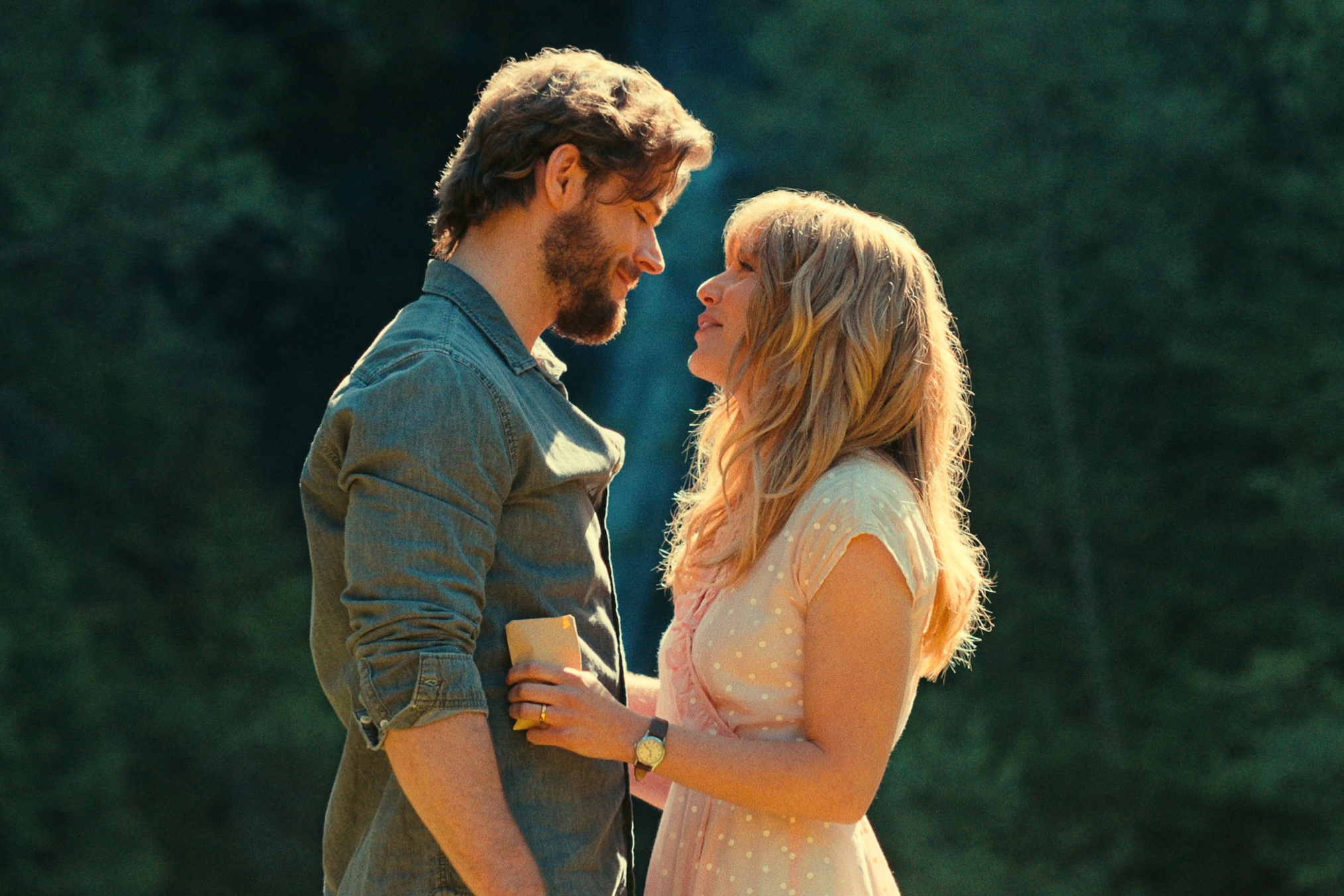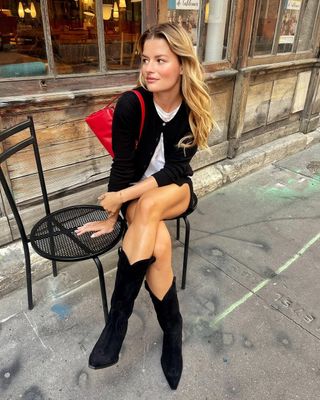
Throughout the course of what’s become a legendary career, Danny Elfman has cultivated a reputation as a singular composer who decidedly doesn’t shy away from the fantastical and eccentric. From his long partnership with Tim Burton (Batman and The Nightmare Before Christmas among them) to recent projects ranging from Doctor Strange in the Multiverse of Madness to Justice League, Elfman’s filmography is a case study in creative experimentation.
Explore
Explore

See latest videos, charts and news
See latest videos, charts and news
It’s a vibrant legacy that continues with the upcoming release of White Noise, director Noah Baumbach’s adaptation of Don DeLillo’s cult classic 1985 novel, which explores themes of consumerism and hysteria. Starring Adam Driver and Greta Gerwig, the movie marks Elfman’s first collaboration with Baumbach, with the acclaimed director fully embracing Elfman’s penchant for the sonically adventurous. “Noah has a sense of, ‘Let’s get in the playground,’” Elfman tells Billboard. “It becomes a wonderful creative process.”
Elfman took part in the Netflix Playlist event on Monday night at Lighthouse ArtSpace in Los Angeles, where part of his White Noise score was performed by an orchestra, along with music from the Knives Out sequel Glass Onion, Guillermo Del Toro’s Pinocchio, The Crown and other Netflix productions. You can get a taste of Elfman’s score in the Playlist clip below:
Ahead of White Noise‘s Nov. 25 theatrical release, followed by its Netflix premiere Dec. 30, Billboard caught up with Elfman to discuss creating a soundscape for the project with Baumbach’s guidance.
White Noise is a very unique film. What made you say yes to collaborating with Noah on this project, and what makes you say yes to prospective projects in general?
First off, it was like “Can Noah Baumbach call you? He’s interested in talking about his new film.” So automatically, there’s a factor of “yes, I’d love to engage in that conversation,” even if I didn’t know what the movie is. Frequently when I say yes to a project it’s about the filmmaker; if it’s one I admire, I’m happy and excited to even find out what it is they’re working on. So Noah is a smart and interesting filmmaker, and adapting White Noise sounded like a hard, interesting project that I’d love to see how he’d tackle.
The first thing I did was read the script, and then I read the book. I was so excited because it was completely obvious to me that it was one of those projects that come along every now and then where there’s no genre to indicate what type of music it should be. When I started out as a film composer doing these films for Tim Burton like Pee-wee’s Big Adventure, Edward Scissorhands, Batman and The Nightmare Before Christmas, all of these films were virtually without a template with absolutely nothing to say as to what type of score it should be. I didn’t realize until later how lucky I was for that.
I would think that would make it harder for a composer. When you have a blank page and are given no guidance, isn’t that more difficult than when you have a certain direction to go in?
No, it’s the opposite. When there’s no clear idea of how it’d sound, that’s when it’s most exciting. If there’s a clear idea of the genre, it’s much harder work to work on something where [the director] is set on a certain type of music while at the same time giving it a personal identity of my own. A clean slate is what I love.
Have there been moments in your career where a director says “I need this kind of sound” but you’re hearing something else? How do you compromise between the two?
That’s the tricky navigation that every composer faces all the time. It’s a delicate dance of presenting your music and options and trying to gear the director’s brain away from this target and over to this one. There’s no magic way to do that; you do it with just presenting lots of options and ideas. You look at what can work for the film and [directors] start to go “Oh yeah,” and you lull them over to a slightly different direction veering off from whatever they’ve been focused on. Any composer with a vast repertory behind them has done it many, many times. Some directors are really just locked into something and it’s incredibly hard to move them off, and some aren’t. Even Tim Burton, who I’ve worked with so many times, it takes awhile to pull him into where I’m recommending where we go with a score.
So then how did you construct White Noise’s soundscape from the ground up?
Noah started throwing me all of the challenges immediately, by our second phone call even before I saw any footage. He’d say, “What would it sound like if you combined Aaron Copland with edgy Giorgio Moroder ’80s-based synthesizer?” Even though I was working on other stuff at the time, I’d hang up the call and couldn’t focus on anything else because the challenge was so enticing to me that I couldn’t help it. It makes the challenges become a bit of an odyssey. “Can you do that? Can you combine this and this and this?” I love that; for me that’s just fun, it’s not even work. That evolved slowly into the tonal basis of what we’re working on with the score. On one hand, we go from a noir-based ’80s-influenced sound, to the other side being really theatrical and classically based, and a third side over the Babbette character [played by Greta Gerwig], which is very simple and minimalist; straightforward with no winking at the audience. Tying them all together was my final challenge.
You have a few directors you frequently collaborate with, but I assume that working with someone for the first time can be a risk because you really don’t know how you’ll jell creatively and with the process. Do you have a specific way of working or do you go with the flow?
Honestly, I have no way of working other than first being as fluid as I possibly can, and by fluid I mean to try to keep my mind open from going in very different directions. When I start a score, there’s lots of experimentation; like, I’m just going to try this and it’ll probably get laughed at or thrown out, but why not?
But like you said, it’s always a risk. On one hand, I love starting a project with a new director because I love risks. Occasionally you find yourself up against a brick wall like, “I can get through this but I don’t want to repeat this experience.” Noah, similar to Gus Van Sant, is open to trying all kinds of different things. In fact, Gus pushes me by saying, “That works really well, now do something really different.” Noah is different but has a similar sense of, “Let’s get in the playground,” and it becomes a wonderful creative process.
What does experimentation look like for you? Are you at a guitar, piano or software like Pro Tools?
I’m at a keyboard, and on there I have a template which has a full orchestral range of sounds, as well as a full range of synthetic sounds, and my own personal percussion instruments, as well as sounds I’ve squeezed out of things like broken pianos. So I’ll start to play around. For White Noise, I was thinking purely synthesizer-based, so I was programming and programming and coming up with sounds I thought were really fun and cool. Other moments I’d think it’d be just strings, piano and a solo clarinet.
You’ve said “Composers lose themselves in a film they’re working on.” How does that happen for you?
To me, it’s a different version of what happens to an actor. When they take on a part, they hope to lose themselves in the role and get lost in the story to become part of it. As a composer, we frequently hope to do the same thing; just lose ourselves in the feel and the tone, rhythm and pace of the movie. If you do that, every part of it ceases to become a struggle; you just embrace it and flow with where it’s going. I’m not going to plan out where each scene goes; I want to get pulled along and often I don’t even block out where I’m going each 10, 15, 20 seconds. If it takes a turn, then I’ll turn with it. Just like an actor who understands their character and is not trying to find it constantly.






















